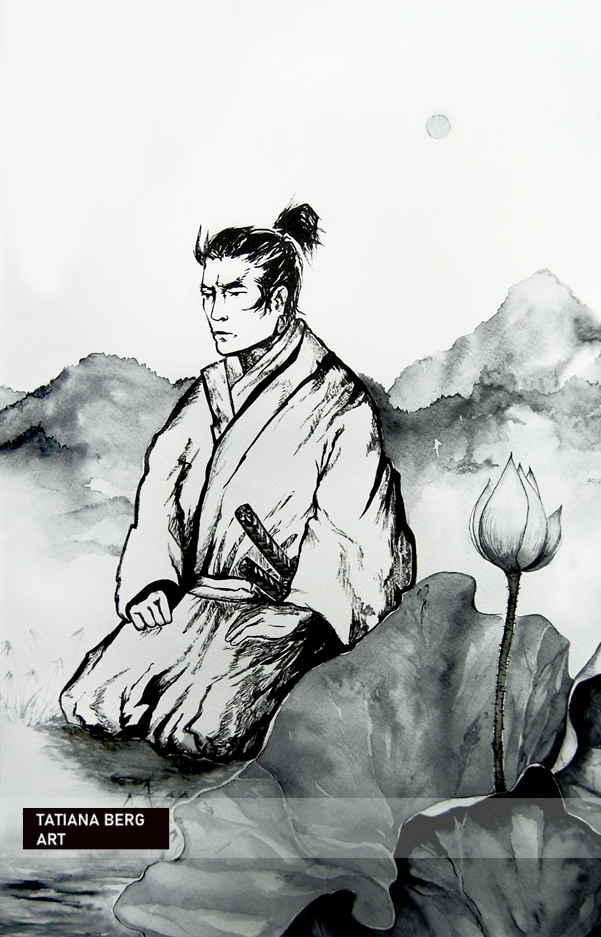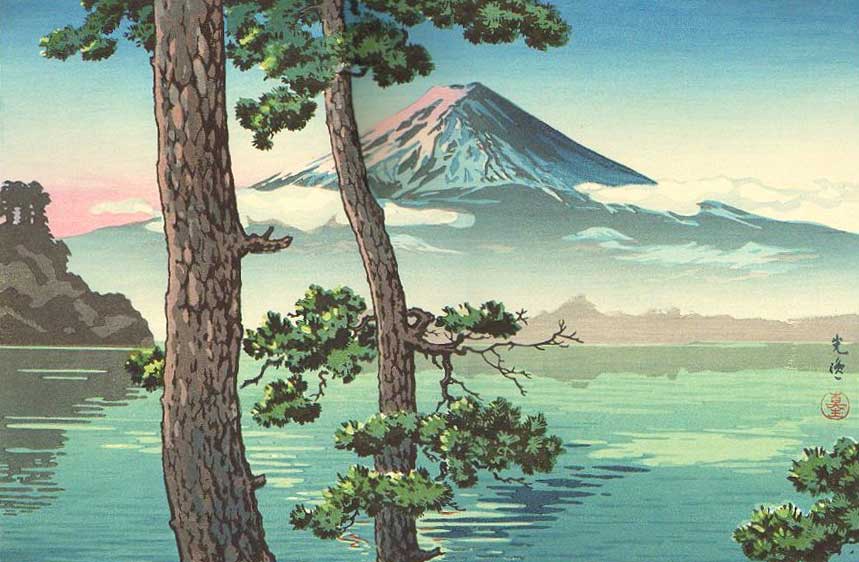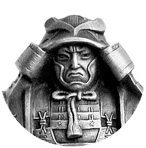Warrior's Relationship With Nature
Samurai Philosophy
-
It is well known that the greatest warriors of the past were extremely caring, tender and respectful towards the natural world, the dominant theme and main inspiration of their aesthetic. At first glance, it may seem paradoxical that seasoned warriors who stared death in the face and spilled gallons of blood could handle a flower so gently or tread so lightly around ants to avoid trampling them. Added to this is the little-known fact that most true warriors were vegetarians. How the Martial Arts are influenced by vegetarianism and compassion towards nature is essential to fully understanding Bushido.

Miyamoto Musashi by T. Berg (print & painting) || All ArtworkSuch a philosophy might seem strange to contemporary readers because it is a well-known fact that food sourced from animals are nutritious and filling, especially for those who endure significant physical strain on a regular basis. That is why today’s Russian special ops soldiers stuff their rucksacks with canned meat, lard and other high-calorie food. They have even become a kind of Hollywood cliché: soldiers, exhausted from battle, sit in the trenches while snacking on canned meat, sipping pure alcohol and puffing on cigarettes. Undoubtedly, they feel depressed, useless and doomed, because they realize that at any moment a blast of shrapnel, blind but fatal, could shred them into chunks of bloody meat.
Indeed, modern warfare is a death trap. The physical, intellectual and moral qualities of an individual soldier no longer matter. Forcefully attacking while the earth burns, stealthily planting landmines and other tricks concocted by resourceful yet cowardly minds have replaced proud born and bred warriors, turning the art of war into slaughter. Military analysts calculate how long soldiers are able to survive in a war as if they were tank guns (100,00 rounds each) or fighter jets (a couple dozen flights). Since they will be destroyed anyway, there is no point in wasting money, right? Safety procedures are only taught for military exercises because in real battle soldiers have only one task: to make it to their position and fire. Their superiors know that, after a couple of rounds, their soldiers will probably be seen by the enemy and killed.
Fuji by Tsuchiya Koitsu (woodblock print)Modern warfare is looking more and more like a video game in which puny, cowardly men hiding in underground shelters reduce entire cities on other continents to rubble or infect their populations with fatal diseases simply by pushing a button. Afterwards, they sweep up the bodies and rebuild the factories. Such “men” do not consider it vile or repugnant to behave like weak, “civilized” homo sapiens. The noble warriors of the past would not even be able to fathom such atrocity. The devaluation of human life has led to pervasive cowardice and lust for victory at any cost. Men have become slaves of machines, making warriors lose respect for themselves and their enemies. The notion of justice has become distorted and the result is a world on the brink of extinction.
Even though things have changed, the Martial Arts have retained their one, everlasting quality: their capacity for building character. As such, they are still included in special ops training for the times when soldiers can not use firearms and must depend on willpower, skills and knowledge, just like the good old days. We can not even dream of the level of perfection the warriors of antiquity had toiled all their lives to achieve. But is such finesse still relevant in present day warfare? Have you ever thought about why warriors would go out of their way not to break even the smallest twig... read further in the bookBack to the Blog
This is part of a chapter from Samurai: Legend by A. R. Berg

